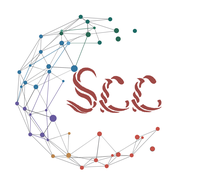Lecture Series: Normative production and decision-making processes in the Roman Curia (16th-20th centuries)

The Roman Curia, particularly after the Avignon experience and even more so after the Council of Trent, with the emergence of the ius novissimum, can be regarded as an institution at the crossroads of multiple processes of translation of canon law. In other words, it became an important player in the game of interpreting and adapting norms to realities, continuously shifting between universal and local perspectives. Thus, it is no exaggeration to state that, at the dawn of modern times, the Roman Curia rose as a dynamic laboratory for the production of normative knowledge. Several factors – the non-linearity of curial structures and mechanisms, the well-known complexity of its archives and sources, as well as the trends of international research on the history of the papacy, which have traditionally promoted mostly national approaches – have not, however, favoured the development of wide-ranging analyses. Moreover, studies on the Roman Curia have often focused on individual dicasteries, neglecting a more thematic and diachronic approach. This lecture series, which takes place in 2023 and 2024 at our Institute, moves beyond these limits, being a space for cross-disciplinary discussion on the normative production and the decision-making processes unfolded in curial context. Each session opens with the contribution of an international expert on the history of the papacy and the Roman Curia, legal history, canon law and/or theology. Such contributions are expected to connect the richness of a particular research experience with a larger common theme, favouring, thus, comparison and further debate.
For more details on the lecture series visit
For further information on our Research Group see https://www.lhlt.mpg.de/2732047/02-albani-Normative-knowledge-in-the-praxis-of-the-Congregation-of-the-Council
